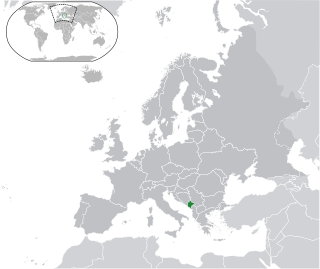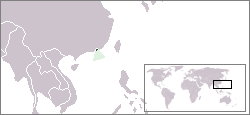Romania does not allow same-sex marriage or civil unions. In June 2018, the European Court of Justice ruled that under certain circumstances same-sex spouses of European Union citizens should be granted a right of residency in Romania. The Constitution of Romania does not define marriage directly, but Article 48 of the Constitution defines marriages between "spouses" as the foundation of the family.
This is a list of notable events in the history of LGBT rights that took place in the year 2005.

LGBT people in Bulgaria face legal challenges not experienced by non-LGBT residents. Both male and female same-sex relationships are legal in Bulgaria, but same-sex couples and households headed by same-sex couples are not eligible for the same legal protections available to opposite-sex couples. Discrimination on the basis of sexual orientation has been banned since 2004, with discrimination based on "gender change" being outlawed since 2015. In July 2019, a Bulgarian court recognized a same-sex marriage performed in France in a landmark ruling. For 2020, Bulgaria was ranked 37 of 49 European countries for LGBT rights protection by ILGA-Europe. Like most countries in Central and Eastern Europe, post-Communist Bulgaria holds socially conservative attitudes when it comes to such matters as homosexuality and transgender people.
China does not recognize same-sex marriage or civil unions. Since 1 October 2017, couples have been able to enter into guardianship agreements, offering partners some limited legal benefits, including decisions about medical and personal care, death and funeral, property management, and maintenance of rights and interests. Attempts to legalise same-sex marriage in 2020 were unsuccessful, but public opinion polls show that support for same-sex marriage is rising in China.
Same-sex marriages are not performed in Aruba, Curaçao, or Sint Maarten, which are constituent countries of the Kingdom of the Netherlands. The islands were obliged after several court rulings to register any marriage registered in the Kingdom, but this primarily considers residency rights, and they do not have to give same-sex marriages the same legal effect as opposite-sex marriages. Marriage in the European territory of the Netherlands, as well as in the Caribbean municipalities of Bonaire, Sint Eustatius and Saba, is open to any two people irrespective of sex.

The rights of lesbian, gay, bisexual, and transgender (LGBT) people in the United Kingdom of Great Britain and Northern Ireland have developed significantly over time. Today, lesbian, gay, and bisexual rights are considered to be advanced by international standards.

Lesbian, gay, bisexual, and transgender (LGBT) people in Montenegro face legal challenges not experienced by non-LGBT residents. Both male and female same-sex sexual activity are legal in Montenegro, but households headed by same-sex couples are not eligible for the same legal protections available to opposite-sex married couples.

Lesbian, gay, bisexual, and transgender (LGBT) persons in the British Virgin Islands face legal challenges not experienced by non-LGBT residents. Same-sex sexual activity has been legal in the British Virgin Islands since 2001.
Several countries in the Americas grant legal recognition to same-sex unions, with almost 85 percent of people in both North America and South America living in jurisdictions providing marriage rights to same-sex couples.
This is a list of notable events in the history of LGBT rights that took place in the year 2008.

Lesbian, gay, bisexual, and transgender (LGBT) rights in Scotland are generally in line with the rest of the United Kingdom, which have evolved extensively over time and are now regarded as some of the most progressive in Europe. In both 2015 and 2016, Scotland was recognised as the "best country in Europe for LGBTI legal equality".

Lesbian, gay, bisexual, and transgender (LGBT) persons in Bermuda, a British Overseas Territory, face legal challenges not experienced by non-LGBT persons. Homosexuality is legal in Bermuda, but the territory has long held a reputation for being homophobic and intolerant. Since 2013, the Human Rights Act has prohibited discrimination on the basis of sexual orientation.

Lesbian, gay, bisexual, and transgender (LGBT) people in Hong Kong may face legal challenges not experienced by non-LGBT residents.

Lesbian, gay, bisexual, and transgender (LGBT) persons in Belize face legal challenges not experienced by non-LGBT citizens, although attitudes have been changing in recent years. Same-sex sexual activity was decriminalized in Belize in 2016, when the Supreme Court declared Belize's anti-sodomy law unconstitutional. Belize's constitution prohibits discrimination on the basis of sex, which Belizean courts have interpreted to include sexual orientation.

Lesbian, gay, bisexual and transgender (LGBT) people in the British Overseas Territory of the Falkland Islands enjoy most of the same rights as non-LGBT people. Marriage and civil partnerships have been open to both opposite-sex and same-sex couples since 29 April 2017. Discrimination on the basis of sexual orientation is constitutionally banned. Additionally, attitudes are largely positive; a public consultation found that 90% of respondents were in favour of same-sex marriage.
Same-sex marriage is legal in the following countries: Andorra, Argentina, Australia, Austria, Belgium, Brazil, Canada, Chile, Colombia, Costa Rica, Cuba, Denmark, Ecuador, Estonia, Finland, France, Germany, Iceland, Ireland, Luxembourg, Malta, Mexico, Nepal, the Netherlands, New Zealand, Norway, Portugal, Slovenia, South Africa, Spain, Sweden, Switzerland, Taiwan, the United Kingdom, the United States, and Uruguay. Same-sex marriage is recognized, but not performed in Israel. Furthermore, same-sex marriages performed in the Netherlands are recognized in Aruba, Curaçao and Sint Maarten.

Among the fourteen British Overseas Territories, eight – Akrotiri and Dhekelia, the British Antarctic Territory, the British Indian Ocean Territory, the Falkland Islands, Gibraltar, the Pitcairn Islands, Saint Helena, Ascension and Tristan da Cunha, and South Georgia and the South Sandwich Islands – recognise and perform same-sex marriages. In the Sovereign Base Areas of Akrotiri and Dhekelia, only British military and civilian personnel can enter into same-sex marriages and civil partnerships.
Same-sex marriage is currently not recognised nor performed in Bermuda, a British Overseas Territory, but it was legal between 2017 and 2022. However, marriages performed during that period remain valid.
Hong Kong does not recognise same-sex marriages or civil unions. However, same-sex couples are afforded limited legal rights as a result of several court decisions, including the right to apply for a spousal visa, spousal benefits for the partners of government employees, and guardianship rights and joint custody of children.
Same-sex marriage is currently not recognised in the Cayman Islands. The island's statutory law limits marriage to different-sex couples. A lawsuit with the Grand Court successfully challenged this ban in March 2019; however, the Court of Appeal overturned the ruling in November 2019. Same-sex civil partnerships are legal following the enactment of the Civil Partnership Law, 2020 on 4 September 2020.











